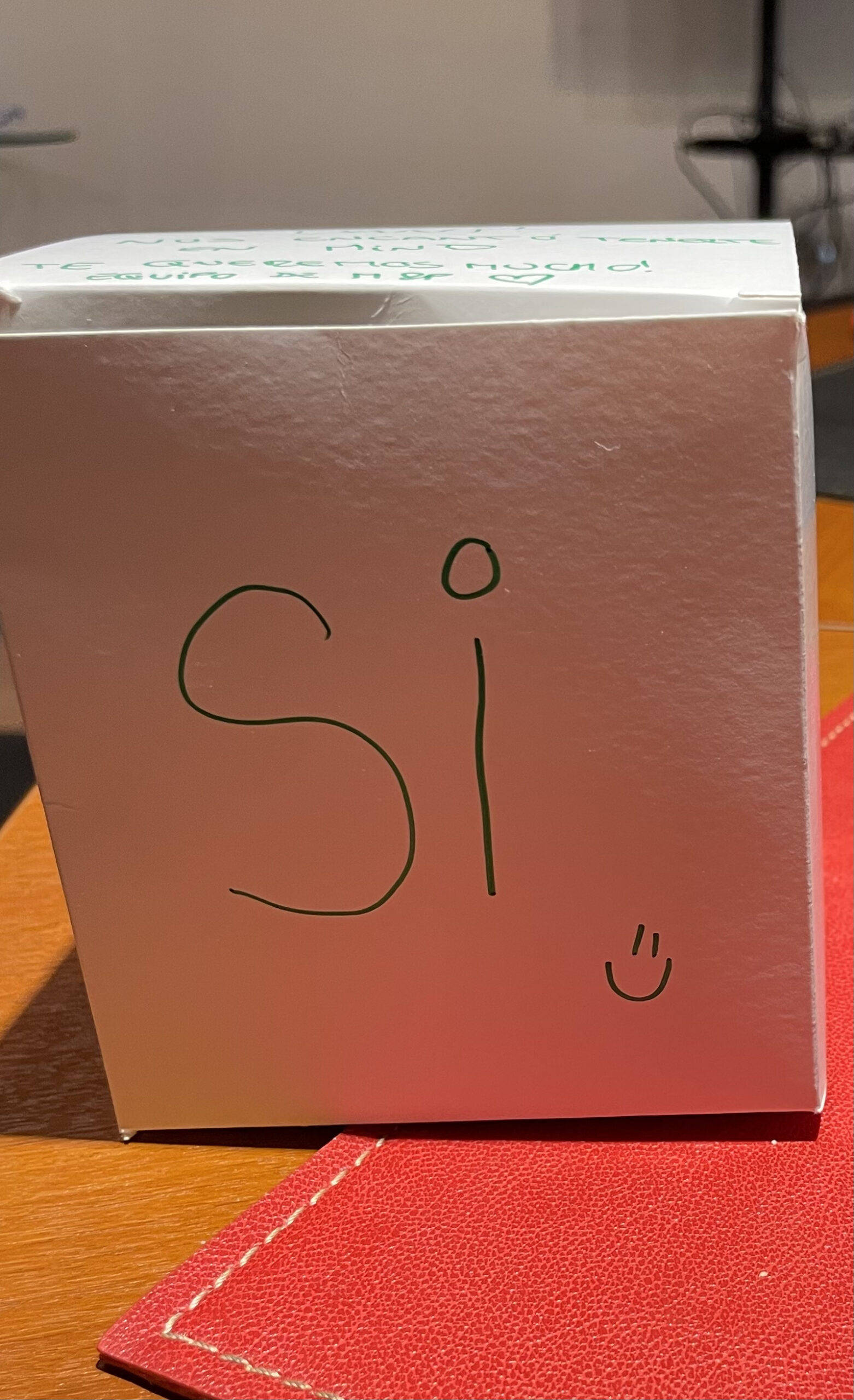7 Things I Wish I Knew Before My Summer in Argentina
By: Daniel Boyko, CAS ’26

 1. Fluency Is Really Really Challenging
1. Fluency Is Really Really Challenging
Here’s a familiar story: you’ve dreamed of living in a foreign country for a few months (for me, it was Argentina) and coming back a native-level speaker. Here’s the reality: while my Spanish improved, my time spent abroad only reinforced for me the difficulty of true fluency. Because the things you miss in a classroom are such nuances as accent (and Argentina has a famous “sh” one), slang, tone, and the natural variation in cadence between different people. In other words, it is reallyreallyreallyreally hard to become fluent, period, and even harder to do it within two months.
However, it is definitely possible to improve your Spanish (you can ask my co-workers who made fun of my many “si’s”). That said, it is easier to make that jump when you’re starting from an intermediate level, which is what I had.
I define that as a solid, but far from perfect, grasp of the language. You can have a conversation with someone, you’re probably better at reading the language than speaking or listening to it, and you have a fairly thorough understanding of grammar rules. Ideally, you want to be at a level where when someone says a new word, you can identify what that word was and ask them what it means. With that base, it becomes easier to make the leap to understand how words look on the page versus how they’re pronounced in the real world, to gain new vocabulary, and to gain a more natural speaking ability.
But with a beginner level, all of the above becomes infinitely more challenging. When someone says a sentence and you can’t understand a single word within it, or understand that they’re speaking with an accent, it is really difficult to make progress.
Looking back, I think I came to Argentina overly optimistic about the progress I could make (even though I am proud of what I achieved). And looking back, I probably would have tried to strengthen my own Spanish knowledge base ahead of time, reviewing grammar rules, grinding Duolingo, and starting to watch more Spanish TV.
2. Research Things to See Before Arrival

Look, I get it, we’re all procrastinators at heart. If you’re anything like me, before leaving for your new country, you’ll probably just worry about certain logistics: where you’re interning, where you’re living, if your boss is relaxed or intense.
But what I wish I spent more time researching was cool things to do after work, on the weekends, on virtual days, etc. I definitely got better at this throughout my stay, but you really want to maximize your time in your country, and the best way to do that is planning things to see in advance. For Buenos Aires, a few examples were their extensive garden areas in Palermo, a tango show, and some of their coolest speakeasies.
And once I really started taking advantage of weekday nights with friends (obviously most people are always ready to do things on the weekend), I had a truly awesome experience, with everyday bringing a new adventure.
3. Planning Travel Weekends in Advance
Back to the procrastination point. If you’re planning on leaving your main area/city, which I highly highly recommend as a great way to explore other parts of the country and continent, you will want to plan in advance. Granted, you may not know who you’re traveling with until you arrive in your country and make new friends, but being on top of planning is super important. Prices seem to skyrocket the more you delay, from flights to buses to housing. If you’re going to be traveling either way, might as well save yourself the time and energy and money by planning it sooner.
(And this is from experience. My last trip was to Iguazú Falls, and while it was great overall, it was a total, last-minute stress storm.)
4. BUT Enjoy Your Home City
This one is important. I don’t know why, but every now and then you become desensitized to the concept that you’re currently living abroad. You forget how even the littlest of things are cool, foreign opportunities awaiting you.
Sometimes it’s nice to just enjoy your home area, returning to some of your favorite restaurants, bars, neighborhoods, or trying something new. Don’t feel the need to travel every weekend. Your new home still has plenty to offer.
 5. Be Prepared to Adjust Your Eating Schedule on the Fly
5. Be Prepared to Adjust Your Eating Schedule on the Fly
I learned this the hard way. In Argentina, their lunch schedule is pretty similar to ours, with most people eating in between noon and 1:30-ish. What totally shocked me was how late dinner was. At my homestay, 9 was the absolute earliest we’d eat dinner, and most nights it was closer to 10. Plus, breakfast in Argentina is somewhat nonexistent (I only had a banana everyday).
So mornings and afternoons could definitely be challenging. I grew accustomed to the new schedule — and didn’t mind the later dinners on the weekend — but it’s something to be aware of, and prepared for, ahead of time.
6. Review Key Words/Phrases
Regardless of your starting language level, there are definitely certain words/phrases you should know ahead of time. Simple greetings are a must, as are words like bathroom, apartment, and your home address.
If you’re staying in a homestay, you should know how to say that. At the airport, they kept asking me where I was staying, and I could not for the life of me come up with the word for homestay. Their response was hotel? hotel? hotel?, and the best I could offer was house with family. It worked out fine, but not ideal. Can’t hurt to learn from my mistakes.
7. It Will Go By So Unbelievably Fast
I still can’t believe my trip is over. It was like I blinked, and the whole dream of being in Argentina ended. Going abroad is just as awesome as everyone says, I promise. I don’t know a single person who regrets the experience. While abroad, enjoy every moment, live life to the max — your next few months are something you’ll remember vividly for the rest of your life.
The Global Research and Internship Program (GRIP) provides outstanding undergraduate and graduate students the opportunity to intern or conduct research abroad for 8 to 12 weeks over the summer. Participants gain career-enhancing experience and global exposure that is essential in a global workforce.